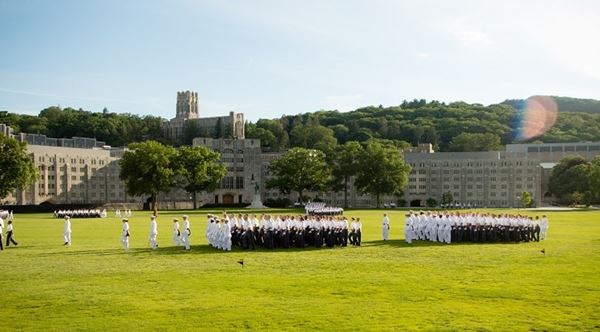The Military Academy Application Process
While applying to a traditional four-year college generally involves writing essays and providing teacher and counselor recommendations and grades, there are several more layers to a military academy application.
For starters, prospective applicants should consider applying to service academy summer programs. Four of the five academies (all except Merchant Marine) offer summer programs for high school students, with application deadlines ranging from late winter to early spring of the junior year. These applications generally include grades and a personal statement. Space is limited for summer programs, but most academies offer several different sessions. Attendance is no guarantee of later acceptance. What it can do, is provide students a glimpse of life at a military academy. This can be as useful in reinforcing a student’s continued interest in attending an academy as it can be in helping them to realize that perhaps service academy life is not for them. Students who attend summer programs are able to skip the “pre-app” portion of the service academy applications.
The summer between junior and senior year is also a time for service academy hopefuls to start the process of securing a nomination from an elected official: a requirement for any academy appointment. Students should visit the official websites of their two state senators, congressional representative, and the vice president, to read the guidelines for applying for nominations. The nomination process generally involves filling out an application (which includes essays), and providing teacher and counselor recommendations, transcripts, and test scores. These go directly to the office of the elected official, and their submission is often followed by an interview. A nomination is not a guarantee of acceptance to a service academy. Only the Coast Guard Academy does not require a nomination. Students may seek a nomination for more than one academy—and should—and they must rank the academies in order of preference, so nominating officials will know their top choice.
Representatives of each service academy serve as applicants’ main point of contact throughout the admission process. The Naval Academy’s Blue and Gold Officers, West Point’s Field Force Representatives, the Air Force Academy’s Admissions Liaison Officers, and the Coast Guard Academy’s Admission Officers can advise applicants on different steps of the process. It’s a good idea for students to identify their admission liaisons sometime in the summer before senior year, and to communicate with them. They will also conduct the candidates’ interviews.
Because military training is physically demanding, candidates must pass a physical fitness test, which can be given by an official at their school, and includes a basketball throw, pull-ups, a shuttle run, push-ups, and a mile run. Applicants must also pass a medical exam administered by the Department of Defense Medical Review Board, and may be disqualified by any number of conditions. Military academies need their cadets to be in top physical condition in order to withstand not only the grueling physical training they must endure, but to be fit to serve in the military beyond graduation.
In addition to securing letters of recommendation for their congressional nominations, candidates must also provide recommendations to the academies as part of their applications. Most academies specify that they want recommendations from teachers in particular subjects. Applicants will be asked to chronicle their extracurricular involvements, provide transcripts and test scores, and write essays that will be read by the admission officers at the academies. Candidates should be able to articulate why they wish to serve in the military and discuss how they have demonstrated leadership.
If admitted to an academy, students must report to campus in the summer to begin training. And if not admitted, they can reapply. It is also wise to apply for ROTC programs at traditional four-year colleges if military service is a goal. Each year, a select number of students who aren’t admitted to a service academy may be offered admission to an academy’s prep school, which can provide them with the academic foundation to be admitted to an academy later.






